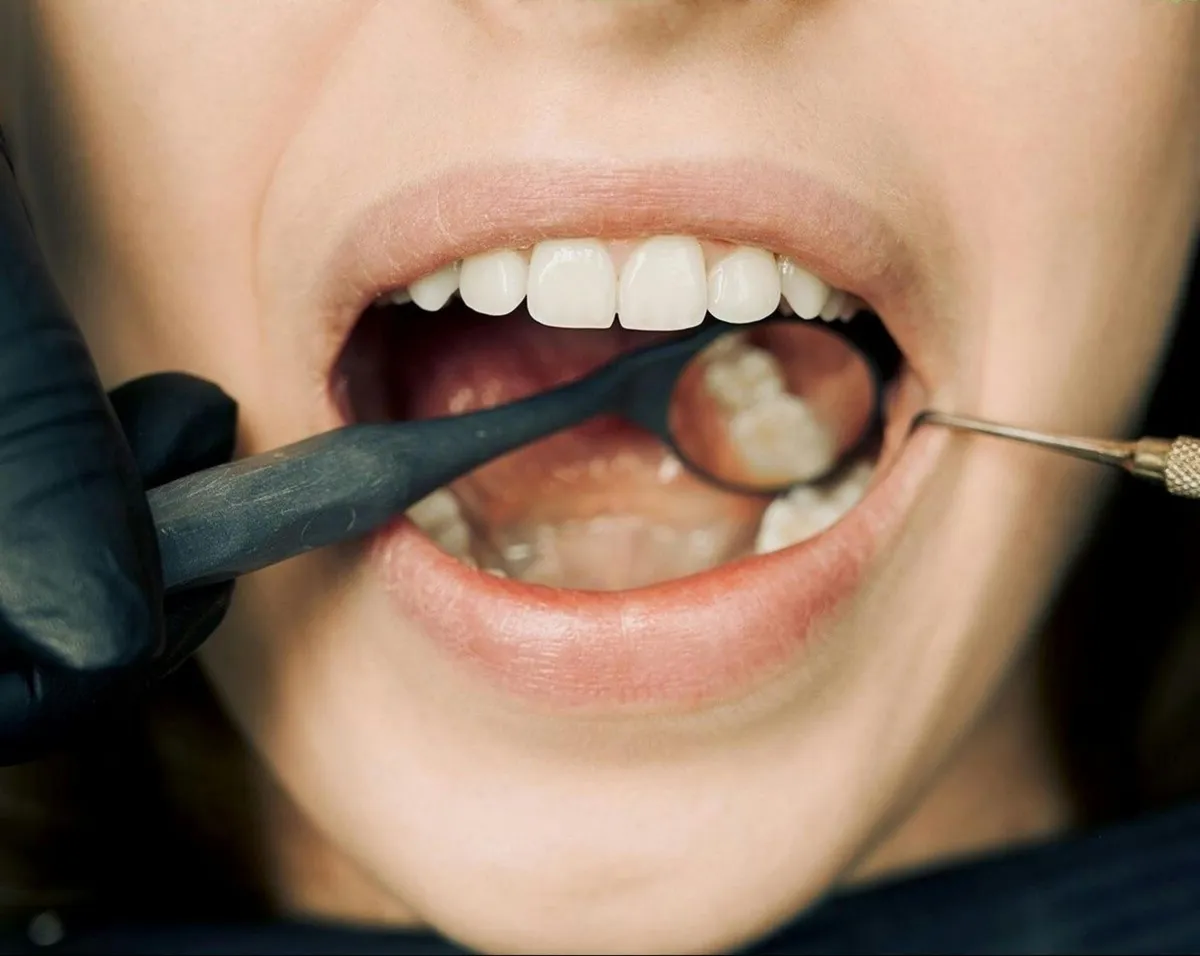Dental implants are highly reliable, with studies showing an impressive long-term success rate of about 90-95% over 10 years. That’s why it can be so concerning when a permanent implant suddenly feels loose. Many patients immediately wonder, “Is a loose dental implant an emergency?” or if it can wait until the next routine visit.
In this post, we’ll cover what causes implant loosening, when it becomes an emergency, and how to protect your smile.
Is a Loose Dental Implant an Emergency?
In many cases, yes — especially when pain, swelling, or mobility are involved. While some patients assume that a little wiggle or discomfort is harmless, it can signal serious problems like infection, bone loss, or mechanical failure. A loose dental implant is not something you should ignore, even if it initially feels like a minor annoyance.
A dental implant should behave like a natural tooth, firmly rooted in place. When an implant is loose, it can lead to further complications if not treated quickly. Depending on the situation, this could mean anything from a simple crown adjustment to saving the implant from complete failure. Early action helps prevent more invasive and costly procedures later on.
Here are common reasons why it qualifies as an emergency:
- Dental implant loosening could be caused by infection (peri-implantitis), leading to bone damage.
- A screw in tooth may become loose due to mechanical failure, increasing the risk of damage to surrounding teeth.
- An untreated loose dental implant can result in total implant failure and may even require bone grafting before replacement.
If you are unsure whether you are dealing with a minor or serious problem, it’s always best to contact your dentist. Prompt treatment gives you the best chance of saving your implant and protecting your smile.
Why Dental Implants Shouldn’t Move
Screw in teeth, also known as dental implants, are designed to act just like natural teeth — strong, steady, and fully integrated into the jawbone. Through osseointegration, the titanium post fuses with the bone, giving the implant stability and allowing it to handle regular chewing forces without shifting. A healthy implant should never feel loose, wiggle, or move out of place. If you notice your implant starting to move, it could be a sign of loosening.
Signs of a Tooth Implant Loosening
If you’re wondering whether you’re experiencing tooth implant loosening, there are a few common symptoms you should watch out for. Recognizing these early signs will help you decide whether you need to seek help quickly. Below are some of the most common indicators to look for.
Movement or Wobbling
One of the most evident signs of implant loosening is when your implant begins to shift or wobble. Unlike natural teeth, which have a slight natural give due to the periodontal ligament, dental implants Astoria offers are meant to feel rock-solid.
. If you notice any movement when biting, chewing, or touching the implant, it likely means that either the crown, the abutment, or the implant itself is loose and needs immediate attention.
Gum Changes or Swelling
A loose dental implant often causes visible changes in the surrounding gum tissue. Swelling, bleeding, redness, or tenderness around the implant could be a sign of peri-implantitis, a form of gum infection that can lead to implant loosening. Healthy gums should appear pink, firm, and pain-free; if you see puffiness or discoloration, call your dentist.
Trouble Chewing Normally
Chewing discomfort or pain is a common complaint when an implant is loose. This is a warning sign if you find yourself chewing only on one side to avoid pressure on your implant or if you experience sharp or dull pain during meals. Left untreated, implant loosening could worsen and even damage surrounding teeth or bone.
Common Causes of a Dental Implant Loosening
Behind a dental implant loosening, ranging from simple mechanical issues from the components of dental implants to more serious, but understanding the cause is the first step to fixing the problem. There are several common reasons behind dental implant loosening, ranging from simple mechanical issues to more serious oral health concerns. Below are the most frequent causes of a loose dental implant.
Loose Abutment or Screw
One of the most common reasons for implant loosening is a loose abutment or screw in tooth sockets. The abutment is the small connector that holds your crown securely to the implant post. Over time, biting forces or minor trauma can cause the abutment screw to loosen, making it feel as though the entire implant is moving. In most cases, your dentist can quickly repair this issue without removing the implant itself.
Gum Disease and Infection
Gum disease, especially peri-implantitis, is a serious cause of implant loosening. This infection causes inflammation and gradual bone loss around the implant, weakening the foundation that holds it in place. Left untreated, gum disease can lead to implant failure, making it feel loose and painful when chewing or biting.
Failed Osseointegration
Failed osseointegration happens when the implant post fails to fuse properly with the jawbone after surgery. This can occur due to insufficient bone quality, poor healing, or excessive pressure during placement. When osseointegration fails, the implant never achieves the stability it needs, resulting in early loosening and the need for immediate professional evaluation.
Can a Loose Dental Implant Be Saved?
In many cases, a loose dental implant can be saved, depending on the cause of the problem and how quickly you seek professional care. If the issue is simply a loose abutment or screw, your dentist may be able to tighten or replace it without affecting the implant itself. Even if loosening is caused by gum disease or bone loss, procedures like deep cleanings or bone grafting may restore the implant’s stability. However, if the implant is loose due to failed osseointegration or severe infection, it may need to be removed and replaced after the area heals.
How to Prevent a Loose Dental Implant
Keeping your dental implants healthy and secure comes down to a combination of smart habits and regular care. While some loosening can occur due to unavoidable factors, most cases are preventable by following a for the maintenance of dental implants
Avoid Hard or Sticky Foods
Hard, sticky, or chewy foods are among the most common causes of implant loosening. Biting into foods such as hard candy, ice, or sticky caramel can strain or damage your implant and may lead to its loosening over time. Especially after surgery, stick to softer foods to give your implant time to heal correctly and remain stable.
Maintain Excellent Oral Hygiene
Poor oral hygiene is one of the leading causes of gum disease and peri-implantitis, which can cause an implant to become loose by weakening the bone and gums supporting it. Brushing, flossing, and using antibacterial mouthwash daily help keep your mouth clean and reduce the risk of infection. Preventing gum disease is key to avoiding implant loosening.
Schedule Regular Dental Check-Ups
Regular dental check-ups allow your dentist to catch signs of implant loosening early, sometimes before you even notice them. Routine visits can help prevent minor issues from turning into major emergencies, and professional cleanings ensure the area around your implant stays healthy and strong.
Smile4Me Dental Care: Your Go-To Emergency Dentist for Loose Dental Implants
At Smile4Me Dental Care, we understand how stressful it can be when your implant is loose or when unexpected loosening occurs. Our highly trained team specializes in diagnosing and treating implant-related emergencies, from simple screw adjustments to more complex cases involving bone loss or infection. We know that patients with loose dental implants often worry about pain, cost, and the risk of losing their implant, so we provide fast, gentle, and affordable care. Whether you’re dealing with mild discomfort or wondering, “Is a dental implant falling out an emergency?”, we’re prepared to restore your smile quickly and safely.
Why Choose Us for Emergency Dental Care?
Smile4Me Dental Care has years of experience treating patients with implant loosening and related emergencies. Our priority is to help you save your implant and relieve your discomfort without delay. We offer:
- Specialized Implant Expertise: We regularly treat patients with loose dental implants and related complications.
- Same-Day Emergency Appointments: We reserve time each day for emergency visits, including cases of implant loosening.
- Full-Service Implant Care: We handle everything from diagnosing a loose implant to performing replacement when necessary.
Our Other Same-Day Services
In addition to treating loose dental implants, Smile4Me Dental Care offers a full range of same-day services to address urgent dental needs, ensuring you won’t have to wait when it matters most.
- Emergency Tooth Extractions: Safe and efficient removal when a damaged or infected tooth can’t be saved.
- Fixing Dental Implants: Immediate stabilization or replacement of a loose dental implant.
- TMJ and Facial Pain Treatment: Relieve discomfort caused by joint issues or bite problems.
We know dental emergencies don’t just happen Monday through Friday — that’s why Smile4Me Dental Care is also open on Sundays. As the leading dentist in Astoria, we ensure our Queens patients have access to urgent dental care—even on weekends. If your implant is loose or you’re experiencing pain, you won’t have to wait until Monday to get help.
Conclusion: Does a Loose Dental Implant Need Emergency Treatment?
“Is a loose dental implant an emergency?” The answer is yes! A loose dental implant may result from something minor like a loose screw or something more serious like gum disease or failed osseointegration. The sooner you address implant loosening, the more likely you are to save your implant and avoid further complications.
At Smile4Me Dental Care, we’re here to help you handle dental emergencies with care, speed, and expertise. Whether you’re unsure how to fix a loose implant or worried about the problem worsening, don’t wait. Book your appointment online or walk in today for same day dental implants — we’ll get you smiling again in no time!



